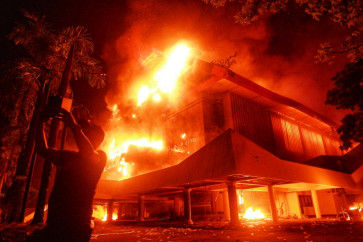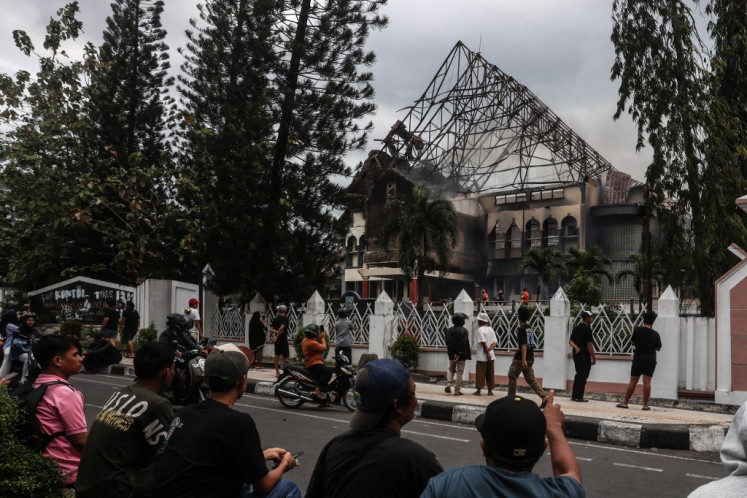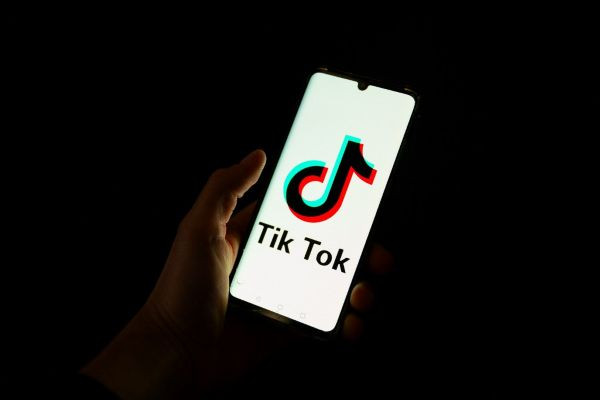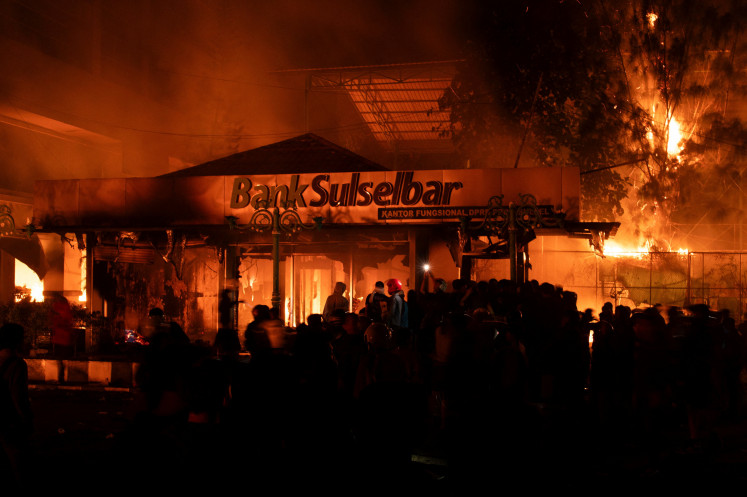Popular Reads
Top Results
Can't find what you're looking for?
View all search resultsPopular Reads
Top Results
Can't find what you're looking for?
View all search resultsRI circulates draft code of conduct on South China Sea
Indonesia has circulated a draft of code of conduct (CoC) on the South China Sea to ASEAN foreign ministers that comprises elements of conflict prevention and conflict management for the maritime territorial dispute
Change text size
Gift Premium Articles
to Anyone
I
ndonesia has circulated a draft of code of conduct (CoC) on the South China Sea to ASEAN foreign ministers that comprises elements of conflict prevention and conflict management for the maritime territorial dispute.
“We’re creating a momentum for progress regarding the South China Sea issue. This is the first time that the ASEAN ministers have received the draft of code of conduct,” Foreign Minister Marty Natalegawa said after the ASEAN Informal Meeting on the sidelines of the UN General Assembly in New York in the US on Thursday.
Elements of the CoC were discussed at the ASEAN Ministerial Meeting in Phnom Penh in July.
Indonesia took the initiative to promulgate a CoC comprising confidence building and conflict prevention measures and conflict management measures, should conflict or an incident arise, to prevent situations from worsening.
According to Marty, there has not yet been a response to the draft, as the 10 ASEAN ministers just received it. They will consult on the draft before the ASEAN Summit begins in November.
In the meeting on Thursday, which was the first time ministers convened since Phnom Penh, the officials also endorsed a six-point agreement on South China Sea dispute that was initiated by Indonesia. The agreement will be incorporated into a joint communiqué, something that ASEAN famously failed to issued in Cambodia.
The endorsement of the agreement means that it should be followed up soon by preparing an ASEAN-China dialogue to discuss the CoC. However, Marty said officials currently had no plans to meet China to discuss the code.
Chinese Foreign Minister Yang Jiechi said that Beijing expected that Indonesia would maintain its constructive role in creating an appropriate situation for China and ASEAN’s member nations involved in the dispute to move forward in easing tension.
Beijing claims almost all the South China Sea, a body of water believed to hold rich reserves of oil and gas that stretches from China to Indonesia and from Vietnam to the Philippines.
ASEAN member nations Vietnam, the Philippines, Brunei and Malaysia claim parts of the sea.
China was initially less-than-enthusiastic with the process of deliberations surrounding the code of conduct.
“However, it [China] has shifted its position, after we tried to create a comfort level for conflicting parties to start a dialogue. It will proceed naturally, without any pressure,” Marty previously said.
China has agreed to implement the Declaration on the Conduct of Parties in the South China Sea, the non-binding agreement that Beijing signed and ASEAN member nations agreed to in 2002.
The CoC is intended as a mechanism to implement the declaration.
“It is like the rules of the road. What has been discussed in the code of conduct actually has been promoted and implemented as regional norms. But we want to codify it [the declaration] so it can be a comprehensively binding,” Marty said.
Any conflict in the South China Sea, which sits astride one of the world’s busiest trade routes, would have global repercussions, given the US$5 trillion in shipborne trade carried through its waters each year.










